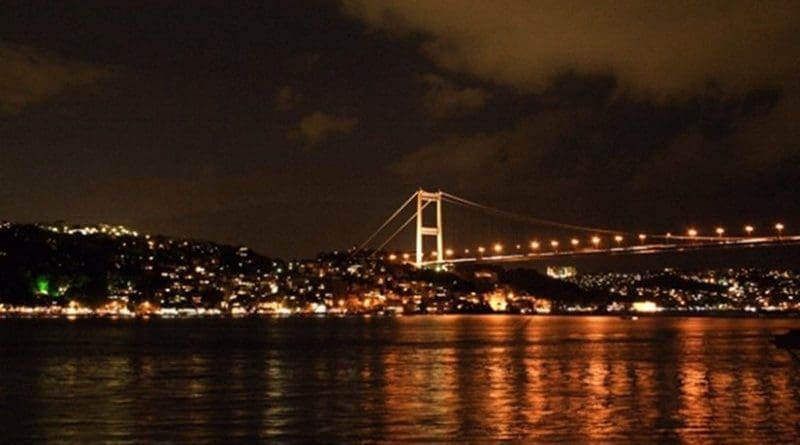Minor Compromises Are Worthwhile For Better EU-Turkey Relations – OpEd
By IDN
By Michael Leigh*
German Chancellor Angela Merkel’s dash to Istanbul on October 18 was a gift to Turkish President Recep Tayyip Erdoğan. Erdoğan is hoping that his Justice and Development Party (AKP) will regain its majority in the November 1 general election, after a setback last June, enabling him to call a referendum to strengthen the president’s constitutional powers.
The outcome of the general election could, therefore, settle Turkey’s political fate for years to come, and accentuate the country’s drift toward authoritarian, sectarian rule.
The chancellor’s visit, in the midst of the refugee crisis and after Turkey’s most lethal terrorist attack in decades, was intended to win the Turkish president’s support for a joint action plan to stem refugee flows that are undermining the EU’s internal open borders policy. Merkel’s trip followed the postponement of the European Commission’s annual report on Turkey until after the Turkish election. Insiders claim that the delay occurred for internal procedural reasons.
But the draft report draws attention to Turkey’s imprisonment of writers, suppression of media outlets, and other threats to the rule of law and human rights. Publication at a delicate moment would not have helped persuade Erdoğan to work together on refugees.
Both Merkel’s visit and the delayed Commission report appear to vindicate Erdoğan’s claim that Europe’s security and stability depend on Turkey. But is the EU so panicked by the refugee influx that it is showering gifts upon an increasingly authoritarian Turkish leader? Is it setting aside its principles for realpolitik?
At first sight, there are grounds for concern. A proposal to grant Turkey “safe country” status – which makes it easier to send back rejected asylum seekers and illegal immigrants to Turkey – clashes with the fear of persecution facing numerous Turkish writers, journalists, and advocates of minority rights.
The postponement of the Commission’s report may prove unwise, especially if it leaks anyway from the Brussels bureaucracy in the run-up to the elections. Merkel’s visit also came a little too close to the election for comfort.
However, there has been no general sacrifice of principle to get Turkey on board with the refugee action plan. Merkel did promise to re-energize Turkey’s stalled EU membership talks, as an inducement for cooperation on refugees. But this will actually strengthen EU scrutiny of the independence and effectiveness of Turkey’s judiciary, as well as the rule of law and fundamental rights in Turkey. Until now, this move has been, somewhat incongruously, blocked by Cyprus.
Merkel reiterated in Istanbul her own conviction, shared by many in Europe, that Turkey is a vital partner for the EU but that it is not destined for membership. The EU’s willingness to bring forward visa-free travel for Turkish citizens also depends on the fulfilment of conditions that include judicial reforms and the protection of human rights. The offer of increased financial assistance to help defray Turkey’s costs for accommodating more than 2 million refugees is also highly conditional. Overall, this package hardly amounts to interference in Turkey’s democratic process, even if elections are close.
Merkel has chosen the moral high ground in welcoming refugees to Germany but is increasingly contested, not least in her own party. Many argue that Germany lacks the physical capacity to absorb the 10,000 refugees who are arriving every day. She now needs to help ensure that Turkey, Jordan, and Lebanon, as vulnerable frontline states, can cope with the huge numbers of refugees they are sheltering.
The refugee crisis amplifies the EU’s other major challenges including Greece and the euro crisis, Russia’s armed intervention in Ukraine, and the possibility of a British withdrawal. A failure on refugees would strengthen populism and euro-scepticism throughout Europe. Budgets, too, are under pressure. Splits between Berlin and central European countries on refugees may make it harder to hold the EU’s line on Russia.
Minor compromises to obtain Turkey’s cooperation are a price worth paying. Better EU-Turkey relations might also bring Ankara’s backing for an agreement to end the division of Cyprus, where settlement talks are entering a decisive phase. In any event, Turkish voters proved their independence and clear-sightedness in June and opinion polls suggest that they will stick to their convictions when they go to the polls in November.
*Sir Michael Leigh is a Senior Advisor at the German Marshall Fund of the United States. This article was originally published on October 19, 2015 with the headline: EU Should Make Minor Compromises for Turkey’s Help on Refugees and is accessible at http://www.gmfus.org/blog/2015/10/19/eu-should-make-minor-compromises-turkey’s-help-refugees.

